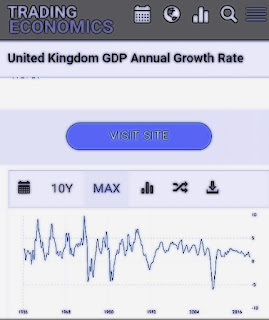https://bit.ly/2OaI0n7
did labour or the lib dems rescue the u k economy during the great recession ?
conservatives have been in number 10 downing street for 9 years now (2019):
bbc news uk credit rating at risk for third downgrade under conservative parliaments
u k had the very first green bank !
green investment bank announced in 2010:
- green investment bank report pdf
''Britain’s credit rating has been downgraded a further notch, with Moody’s saying the government’s plans to fix the public finances had been knocked off course and Brexit would weigh on the economy.
The ratings agency, which was the first major credit ratings agency to strip Britain of its top-notch AAA rating in 2016, said it had cut the rating to Aa2 from Aa1.'
uk credit rating has been downgraded twice because of brexit vote, austerity and tax cuts after the rescue
u k tax cuts for the wealthy 2015
u k tax cuts for the wealthy 2016
u k tax cuts for the wealthy 2017
u k tax cuts for the wealthy 2018
u k tax loopholes for the wealthy 2019
statistic uk gdp 2000 2018
statistica u k unemployment rate 2000 to 2018:
the balance says in 2009:
uk credit rating has been downgraded twice because of brexit vote, austerity and tax cuts after the rescue
u k tax cuts for the wealthy 2015
u k tax cuts for the wealthy 2016
u k tax cuts for the wealthy 2017
u k tax cuts for the wealthy 2018
u k tax loopholes for the wealthy 2019
statistic uk gdp 2000 2018
statistica u k unemployment rate 2000 to 2018:
the balance says in 2009:
the u k stimulus wiki says:
'A bank rescue package totalling some £500 billion (approximately $850 billion) was announced by the British government on 8 October 2008, as a response to the ongoing global financial crisis.[1][2][3] After two unsteady weeks at the end of September, the first week of October had seen major falls in the stock market and severe worries about the stability of British banks. The plan aimed to restore market confidence and help stabilise the British banking system, and provided for a range of what was claimed to be short-term "loans" from the taxpayer and guarantees of interbank lending, including up to £50 billion of taxpayer "investment" in the banks themselves. In fact some of these loans and investments, via shareholdings, have since been sold back to the market at huge losses to the taxpayer (but a consequent subsidy to the shareholders).'
quantitative easing is the buying of government bonds owned by private banks to increase the money supply to promote spending



















No comments:
Post a Comment